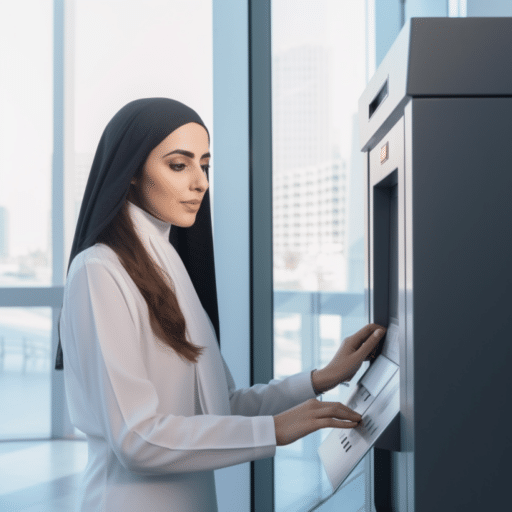Living in Dubai can be an exciting and enriching experience for expats from all over the world. However, it is essential to have a good understanding of money management in this vibrant city to make the most of your time here.
The purpose of this blog is to equip you with the knowledge and tools needed to make informed decisions about your finances, so you can enjoy your time in Dubai to the fullest without worrying about financial struggles.
If you want to invest as an expat or high-net-worth individual, which is what I specialize in, you can email me (advice@adamfayed.com) or use WhatsApp (+44-7393-450-837).
This article is here for informational purposes only, and isn’t formal advice.
Table of Contents
What are the main expenses I should expect when living in Dubai as an expat?
As an expat living in Dubai, you can expect to have several expenses, just like any other city in the world. However, some expenses in Dubai might be higher than in your home country. Here are some of the main expenses you should expect when living in Dubai as an expat:
Housing
Accommodation is likely to be one of your largest expenses in Dubai. The cost of renting or buying a property in Dubai varies depending on the location, type of property, and the amenities offered. Expats can opt for apartments, villas, or shared accommodations, depending on their preferences and budgets.
Transportation
Getting around Dubai can be quite expensive, with taxis and private cars being the most common modes of transportation. The cost of fuel is relatively low in Dubai, but car ownership and maintenance can be costly. Public transportation, such as the metro and buses, are more affordable options.
Healthcare
Healthcare in Dubai is of high quality but can be costly, especially for those without insurance. Expats should consider obtaining health insurance to cover any unexpected medical expenses.
Education
If you have children, you will need to factor in the cost of education. Dubai has a wide range of schools, including international schools that cater to expat families. The cost of education in Dubai can be quite high, so it’s essential to plan accordingly.
Food and entertainment
Dubai is a city with a thriving food and entertainment scene. While there are plenty of affordable options, some restaurants and activities can be expensive. It’s essential to budget accordingly to enjoy all that Dubai has to offer.

Having a local bank account in Dubai makes it easier to manage your finances and pay bills.
Should I open a local bank account or keep using my home country account?
If you’re an expat living in Dubai, you may be wondering whether to open a local bank account or continue using your home country account. While it’s possible to manage your finances with your home country account, opening a local bank account has several advantages.
Firstly, having a local bank account in Dubai makes it easier to manage your finances and pay bills. You can set up automatic payments for rent, utilities, and other expenses, making it more convenient to manage your monthly payments. This is especially important if you’re planning on staying in Dubai for an extended period.
Secondly, opening a local bank account in Dubai can help you save money on currency exchange fees. If you continue using your home country account, you may be subject to international transaction fees every time you withdraw cash or make a payment in a different currency. A local bank account can save you money by avoiding these fees and providing better exchange rates.
Thirdly, having a local bank account in Dubai can make it easier to apply for a credit card or a loan. If you’re looking to finance a significant purchase, such as a car or a property, having a local bank account can increase your chances of being approved for a loan or a credit card.
Overall, while it’s possible to manage your finances with your home country account, opening a local bank account in Dubai can make your life easier and help you save money.
It’s essential to research different banks and their services to find the right one for your needs. Be sure to check their fees, interest rates, and minimum balances before making a decision.
How can I save money on housing expenses in Dubai?
Housing is one of the most significant expenses for expats living in Dubai. However, there are several ways to save money on housing expenses in this city.
Choose the right location
Dubai is a large city with many different neighborhoods. While some areas are more expensive than others, there are also many affordable options. Research different neighborhoods to find one that meets your needs and budget.
Consider sharing accommodation
Sharing accommodation with roommates or housemates is a great way to save money on rent. You can split the cost of rent and utilities, making it more affordable to live in Dubai.
Negotiate your rent
When negotiating your rent, consider negotiating a lower rent or asking for additional amenities such as free parking or gym access. Some landlords may be willing to negotiate, especially if you’re a long-term tenant.
Look for off-plan properties
Off-plan properties are properties that have not yet been completed or are still under construction. These properties are often sold at a lower price, making them a great option for those looking to save money on housing expenses.
Consider moving to the suburbs
Living in the suburbs can be more affordable than living in the city center. While it may require a longer commute to work, living in the suburbs can provide you with more affordable housing options.
Opt for a smaller apartment
If you don’t need a lot of space, consider renting a smaller apartment. Smaller apartments are often more affordable than larger apartments and can help you save money on housing expenses.
What taxes should I be aware of as an expat in Dubai?
As an expat in Dubai, you may be wondering what taxes you need to be aware of. Fortunately, Dubai does not have any income tax or capital gains tax, which means that your income and investment gains are not taxed. However, there are other taxes and fees you need to be aware of.
VAT is a tax on the consumption of goods and services in Dubai. Currently, the VAT rate in Dubai is 5%. This tax is applicable to most goods and services, including food, clothing, and entertainment.
If you’re importing goods from other countries, you may be subject to customs duty. The amount of customs duty you need to pay depends on the type of goods you’re importing and their value.
If you own property in Dubai, you will be subject to property tax. This tax is calculated based on the value of your property and is payable annually.
If you stay in a hotel or other tourist accommodation in Dubai, you may be subject to a tourism tax. The tax rate is 7% of the total bill.
This fee is charged on top of your monthly rent and is payable annually. The fee is calculated based on the value of your rental contract and is typically 5% of the annual rent.
It’s important to note that while Dubai does not have any income tax or capital gains tax, you may still be subject to taxes in your home country. It’s essential to understand your tax obligations in both Dubai and your home country to avoid any legal issues.
How can I manage my money and stay on top of my finances while living in Dubai?
Managing your money and staying on top of your finances while living in Dubai is essential to ensure that you have a comfortable life without any financial worries. Here are some tips on how to manage your money and stay on top of your finances while living in Dubai.
Firstly, it’s essential to create a budget and stick to it. Start by listing all your expenses, including housing, transportation, food, and entertainment. Determine your monthly income and allocate your money accordingly. You can use budgeting apps or spreadsheets to help you keep track of your expenses and income.
Secondly, set financial goals for yourself. Whether it’s saving for a down payment on a property, investing in stocks or mutual funds, or paying off debt, having financial goals can help you stay motivated and on track with your finances.
Thirdly, use credit cards wisely. While credit cards can be useful for building credit and earning rewards, it’s crucial to use them responsibly. Avoid carrying a balance and always pay your credit card bills on time to avoid interest charges and fees.
Fourthly, plan for emergencies. It’s essential to have an emergency fund that can cover at least three to six months’ worth of living expenses. This fund can help you avoid taking on debt in the event of an emergency.
Fifthly, seek professional advice if needed. If you’re struggling with managing your finances or need help planning for the future, consider working with a financial advisor.
A financial advisor can help you create a personalized financial plan and provide you with valuable advice on investing, saving, and budgeting.

One of the most common ways to transfer money between countries is through a bank transfer.
What is the best way to transfer money between countries when working in Dubai?
When working in Dubai as an expat, you may need to transfer money between countries for various reasons, such as sending money to your family or paying bills in your home country. Here are some of the best ways to transfer money between countries while working in Dubai:
Bank transfers
One of the most common ways to transfer money between countries is through a bank transfer. You can transfer money directly from your bank account in Dubai to your bank account in your home country. This method is secure and convenient, but it can be expensive, especially if you’re transferring large amounts of money.
Online money transfer services
Online money transfer services like TransferWise, PayPal, and WorldRemit provide a fast and affordable way to transfer money between countries. These services offer competitive exchange rates and lower fees than traditional banks. However, you need to set up an account with these services before you can start transferring money.
Money exchange companies
Money exchange companies like UAE Exchange and Al Ansari Exchange offer money transfer services to various countries worldwide. They often have competitive exchange rates and lower fees than banks, but you need to visit their offices to transfer money.
Cryptocurrencies
Cryptocurrencies like Bitcoin and Ethereum offer a decentralized way to transfer money between countries without the need for a third-party financial institution. While cryptocurrencies are gaining popularity, they can be volatile, and their legality in some countries is still uncertain.
Before transferring money between countries, it’s essential to compare exchange rates and fees to find the most affordable option. It’s also crucial to ensure that you’re using a secure and reliable service. With the right approach, transferring money between countries can be a simple and hassle-free process.
What is the cost of living in Dubai compared to other cities around the world?
Dubai is known for being a vibrant and luxurious city, and as a result, the cost of living can be higher than other cities around the world.
However, the cost of living in Dubai can vary depending on factors such as lifestyle, housing, and location. Here is a comparison of the cost of living in Dubai compared to other cities around the world:
The cost of housing in Dubai can be high, with rent for a one-bedroom apartment in the city center averaging around $1,500 to $2,000 per month. In comparison, the cost of rent for a one-bedroom apartment in London is around $2,000 to $3,000 per month, while in New York, it can be around $3,000 to $4,000 per month.
The cost of food in Dubai can vary depending on where you shop and eat. In general, eating out can be expensive, with a meal for two at a mid-range restaurant costing around $50 to $75. In comparison, a similar meal in London can cost around $70 to $100, while in New York, it can be around $80 to $120.
The cost of transportation in Dubai is relatively affordable, with a monthly pass for public transportation costing around $50 to $60. In comparison, a similar pass in London can cost around $150 to $200, while in New York, it can be around $120 to $150.
Dubai is known for its luxurious entertainment options, and as a result, the cost of entertainment can be high. A movie ticket in Dubai can cost around $15 to $20, while a similar ticket in London can be around $15 to $25 and in New York, it can be around $15 to $20.
What are the best investment options for expats living in Dubai?
As an expat living in Dubai, there are several investment options available to help you grow your wealth. Here are some of the best investment options for expats living in Dubai:
Real estate
Investing in real estate in Dubai can be a great way to grow your wealth. The property market in Dubai has seen significant growth in recent years, and investing in property can provide a steady rental income and the potential for capital appreciation.
Stocks and shares
Investing in stocks and shares can provide long-term growth potential. There are several investment platforms and brokerage firms in Dubai that offer access to global markets and a range of investment products.
Mutual funds
Mutual funds are an investment option that pools money from multiple investors to purchase a portfolio of stocks, bonds, and other securities. Mutual funds can provide a diversified investment portfolio and are managed by professional fund managers.
Retirement plans
Retirement plans are a great way to invest in your future and save for retirement. There are several retirement plans available in Dubai, including the Dubai Retirement Fund, which provides retirement benefits to eligible individuals.
Gold and other precious metals
Investing in gold and other precious metals can provide a hedge against inflation and market volatility. There are several gold dealers and precious metal investment platforms in Dubai that offer a range of investment products.
It’s essential to consider your investment goals, risk tolerance, and financial situation before choosing an investment option.
It’s also crucial to research and understand the investment products and their associated risks before making any investment decisions.
Working with a financial advisor can also help you make informed investment decisions and create a personalized investment plan.

Investing in stocks and shares can provide long-term growth potential.
How can I prepare financially before moving to Dubai as an expat?
If you’re planning to move to Dubai as an expat, it’s essential to prepare financially to ensure that you can make a smooth transition and avoid any financial difficulties. Here are some tips on how to prepare financially before moving to Dubai as an expat:
Research the cost of living
Dubai is known for its luxurious lifestyle, but it’s also a relatively expensive city. Research the cost of living in Dubai, including housing, food, transportation, and entertainment, to get an idea of how much you’ll need to budget for.
Create a budget
Once you’ve researched the cost of living in Dubai, create a budget based on your estimated income and expenses. This will help you understand how much money you’ll need to cover your living expenses and how much you can save or invest.
Save for an emergency fund
It’s essential to have an emergency fund before moving to Dubai. Your emergency fund should be able to cover at least three to six months’ worth of living expenses in case of unexpected events, such as job loss or medical emergencies.
Understand your tax obligations
While Dubai does not have any income tax or capital gains tax, you may still be subject to taxes in your home country. It’s essential to understand your tax obligations in both Dubai and your home country to avoid any legal issues.
Consider the cost of relocation
Moving to Dubai can be expensive, and you may need to cover the cost of relocation, such as airfare, shipping, and visa fees. Make sure to include these costs in your budget.
Get insurance
It’s important to have health insurance and other insurance coverage before moving to Dubai. Research the types of insurance available and choose the ones that best suit your needs.
Pained by financial indecision? Want to invest with Adam?

Adam is an internationally recognised author on financial matters, with over 760.2 million answer views on Quora.com, a widely sold book on Amazon, and a contributor on Forbes.



